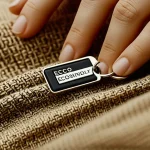Core Criteria for Identifying Sustainable Fashion Brands in the UK
Understanding sustainable fashion definitions is crucial for shoppers seeking ethical choices in the UK market. Sustainable fashion involves brands prioritizing environmental stewardship, social responsibility, and long-term viability. This extends beyond using eco-friendly materials to include practices that reduce waste, carbon emissions, and water consumption.
Key evaluation factors for identifying genuine sustainable brands include the use of organic, recycled, or low-impact fabrics, ensuring ethical labor standards such as fair wages and safe working conditions, and obtaining recognized certifications that guarantee transparency. Certifications like GOTS and Fairtrade help validate these claims. Environmental impact assessments cover all stages—from production and packaging to distribution and end-of-life disposal.
Also to discover : What Are the Essential Elements of Traditional British Women’s Fashion?
In the UK context, additional considerations involve local manufacturing to reduce transportation emissions and compliance with UK labor laws. Consumers engaged in ethical shopping UK practices often value brands showing clear commitments to these principles. Studying a brand’s mission statements, material sourcing details, and labor policies can help distinguish truly sustainable brands from those with superficial claims.
By focusing on these core criteria, consumers can make informed decisions supporting both ecological preservation and social justice within the UK fashion industry.
Also to read : How Does British Women’s Fashion Reflect Modern Cultural Trends?
Key Evaluation Factors for UK Sustainable Fashion Choices
Understanding the role of eco-friendly materials is central to sustainable fashion definitions in the UK. Brands committed to sustainability often prioritize organic cotton, hemp, or recycled fibres that reduce environmental damage. These materials lower water use and pollution compared to conventional fabrics, supporting a more circular fashion economy.
Ethical labour standards are equally critical. This involves paying fair wages, ensuring safe working conditions, and maintaining transparency across complex supply chains. Consumers who practice ethical shopping UK seek brands that actively prevent exploitation and promote worker wellbeing in both local and international contexts.
Certification marks such as GOTS (Global Organic Textile Standard) and Fairtrade play a vital role in validating claims. These certifications confirm compliance with stringent ecological and social criteria, helping shoppers distinguish genuine sustainable brands from less transparent alternatives. UK and international certifications collectively establish accountability and trustworthiness.
In summary, evaluating UK sustainable fashion means scrutinizing materials, labour practices, and certifications. Together, these key evaluation factors empower consumers to make informed decisions that promote both environmental stewardship and social equity in the UK fashion industry.
Core Criteria for Identifying Sustainable Fashion Brands in the UK
Sustainable fashion definitions focus on brands that integrate environmental care, social responsibility, and practical viability into their operations. In the UK, sustainable fashion demands more than just using eco-friendly fabrics—it involves a comprehensive approach addressing the entire supply chain. This includes key evaluation factors such as sourcing organic or recycled materials, enforcing ethical labor standards, and ensuring transparency through reliable certifications.
Ethical shopping UK places emphasis on brands that guarantee fair wages and safe conditions for workers while minimizing environmental harm. Consumers should look beyond marketing claims by investigating how a brand manages water usage, waste, and carbon footprints throughout production and distribution.
UK-specific considerations further refine sustainable fashion definitions: local manufacturing not only cuts emissions but also supports compliance with British labor laws, offering additional consumer confidence. Brand mission statements, public reports, and third-party certifications like GOTS and Fairtrade remain vital tools for assessing authenticity.
By applying these core criteria, shoppers can engage in ethical shopping UK practices that promote lasting social and environmental benefits within the local fashion sector.
Core Criteria for Identifying Sustainable Fashion Brands in the UK
Sustainable fashion definitions in the UK encompass more than just eco-friendly aesthetics—they focus on holistic practices addressing environmental, social, and economic impacts. Key evaluation factors include materials, ethical labor, certifications, and environmental footprint. For materials, brands should prioritise organic, recycled, or low-impact fibres that reduce harm to ecosystems and conserve resources. Ethical shopping UK also demands fair wages and safe working conditions throughout the supply chain.
Certifications such as GOTS and Fairtrade verify adherence to strict ecological and labor standards, improving brand transparency and accountability. Beyond certifications, full supply chain transparency enables consumers to assess a brand’s environmental impact, from production methods to packaging and distribution.
UK-specific considerations are critical. Locally made garments lessen transportation emissions and ensure compliance with British labor laws, which can be more rigorous than international standards. Understanding these finer points allows ethical shopping UK consumers to distinguish genuinely sustainable brands from those making superficial claims, thus aligning purchases with values that support sustainability, social justice, and long-term industry viability.
Core Criteria for Identifying Sustainable Fashion Brands in the UK
Defining sustainable fashion within the UK involves understanding critical components that extend beyond materials to encompass ethical practices and environmental responsibility. Key evaluation factors include the use of organic or recycled fibres that minimise resource depletion and pollution. Ethical shopping UK means assessing if brands uphold fair wages and safe working environments, ensuring labour standards reflect social justice ideals.
Certifications remain crucial in authenticating sustainability claims. Third-party validations like GOTS and Fairtrade confirm compliance with rigorous ecological and social criteria. These certifications improve transparency, helping consumers differentiate between superficial marketing and genuine commitment.
UK-specific factors enrich this evaluation framework. Locally produced garments reduce carbon emissions tied to transportation and guarantee adherence to UK labour laws, which often surpass international protections. Brands demonstrating transparent supply chains and reporting environmental impacts foster trust among eco-conscious customers.
Integrating these core criteria empowers ethical shopping UK by offering a comprehensive lens to identify brands that truly embody sustainability, aligning purchases with values that support both the planet and people.








